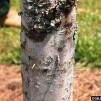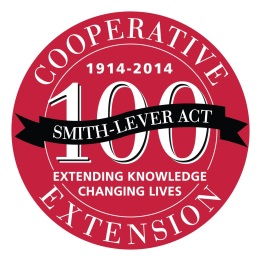
Keith Mickler: Growing vegetables in a containers and/or other vessel-like oddities (session Saturday at Lavender Mountain)
By Keith Mickler, county coordinator and agriculture agent
Oh boy, oh boy, oh boy is that spring I smell in the air? I do believe it’s time to start thinking about fresh tomatoes, squash, cucumbers, peppers, green beans and a whole host of tasty vegetables. What’s that you say, I have no room for a vegetable garden. So, don’t let that stop you from growing a few of your favorites.
If your vegetable gardening is limited by scarcity of space or an unsuitable area, consider raising fresh, nourishing homegrown vegetables in containers. A patio, balcony or small back yard will give you plenty of room for a productive vegetable garden in containers, straw bales or raised beds.
Growing vegetables in containers is a great way to introduce children to the joys and rewards of the vegetable harvest. I always plant a few cherry tomatoes each spring in the containers found on my patio; because my son just loves to pick and eat fresh tomatoes, and secondly the dang little things are good for him, too.
Most any vegetable that will grow in a backyard garden will also do well in containers. Vegetables that are suited for growing in containers includes tomatoes, peppers, eggplant, green onions, beans, lettuce, squash, radishes, etc.
Pole beans and cucumbers also do well but will require considerably more space because of their vining growth habit, hey how about growing them inside of a cage or up a wall.
Got your interest yet, good? To get started you need containers, a straw bale, pallet, 5 gallon bucket, see not a real issue on what you use, just so it holds soil.
What do I fill my container with?
The most important part in container gardening is, “the soil” or as us horticulturist like to say “Growing Media.” Any growing media must provide water, nutrients, and a physical support in order to grow healthy plants. A good growing media must also drain well. Synthetic or soilless mixes are well suited for vegetable gardening in containers and may be composed of sawdust, wood chips, peat moss, perlite, or vermiculite. The growing media starts out free of disease and weed seeds, holds moisture, and nutrients, and also drains well, and is lightweight. Many synthetic soil mixes are available at your local garden centers. You can also make your own soilless mix by mixing together horticultural grade vermiculite, peat moss, limestone, superphosphate and garden fertilizer as well.
What do I fertilize my vegetable with?
Fertilizers you will find best suited for containers will be either time-release or water soluble. Time-release fertilizers are often pre-mixed with the potting media at planting time.
Water soluble fertilizers, on the other hand, are added to water and used when plants begin to grow. Peters20-20-20 or Miracle Gro15-30-15 are two examples found in most garden centers. The easiest way to add fertilizer to plants growing in containers is to prepare a nutrient solution and then pour it over the growing media. There are many good commercial fertilizer mixes available to make nutrient solutions. Always follow the label found on the fertilizer container for how much and how often to apply.
How do I water my vegetables?
Proper watering is essential for a successful container garden and one watering per day is usually adequate. Mulches can also be placed on top of the soil mix to reduce water loss. Compost, straw, pine needles, grass clippings, shredded bark, and moss are examples of mulches and vary in their effectiveness.
How much light do my vegetables need?
Nearly all vegetable plants will grow better in full sunlight than in shade. One major advantage to growing vegetables in containers is that you can place them in the sun where they can receive the best possible growing conditions provided my Mother Nature.
Where do I go to learn more?
If you would like to learn much, much more about growing vegetables in containers and other oddities, please join me on Saturday, March 21st at Lavender Mountain Hardware and Garden Center starting at 10 a.m. where we will have a workshop and several demonstrations of growing vegetables in containers and other oddities.
Keith Mickler is the County Coordinator and agriculture agent for The University of Georgia/Floyd County Cooperative Extension. Located at 12 East 4th Ave, Rome, GA 30161 (706) 295-6210.




